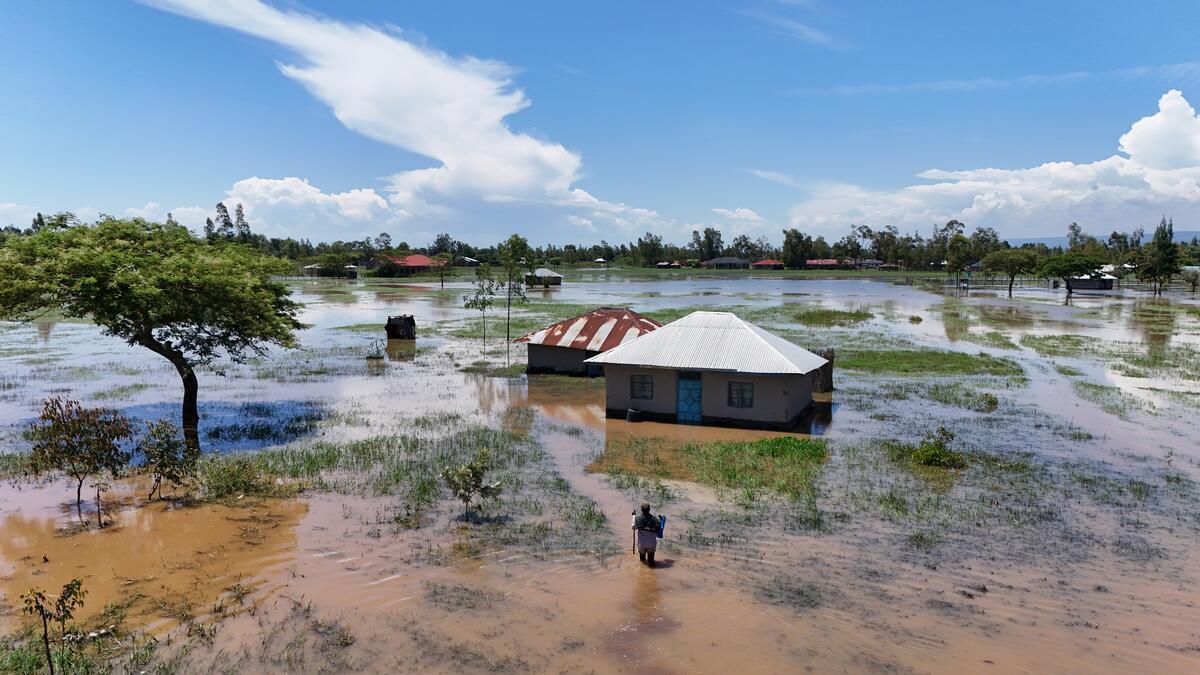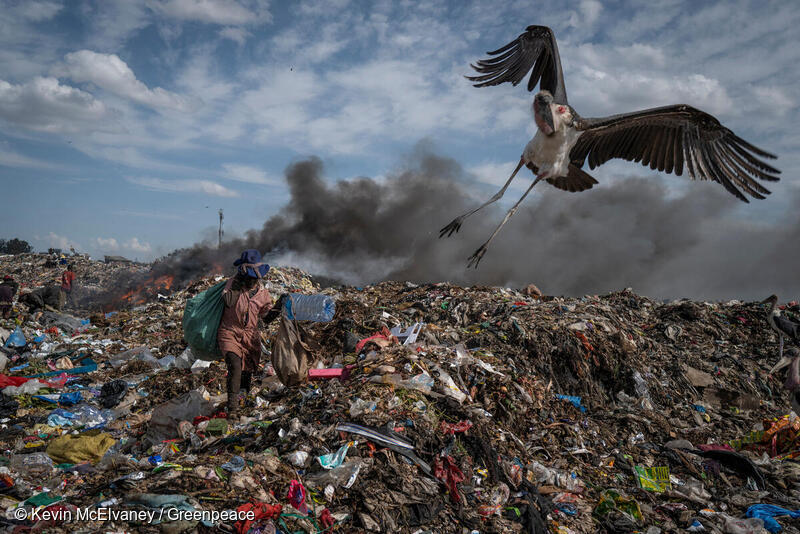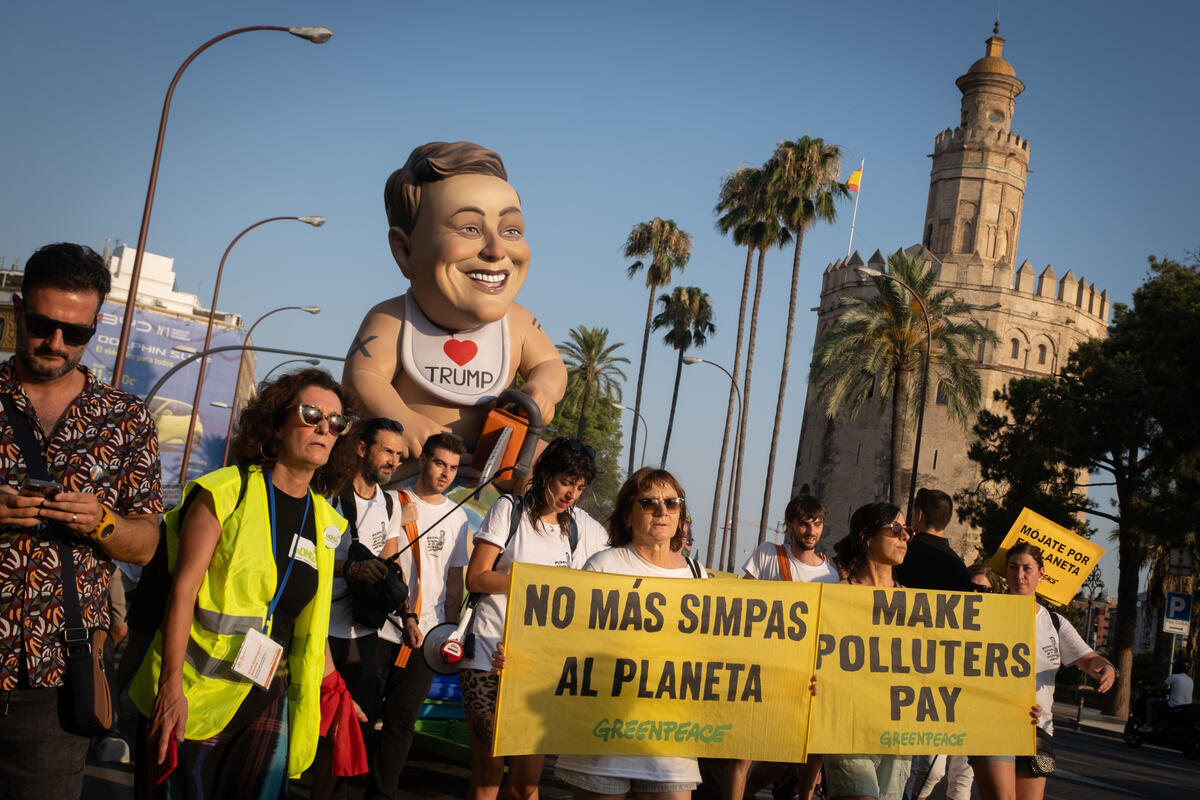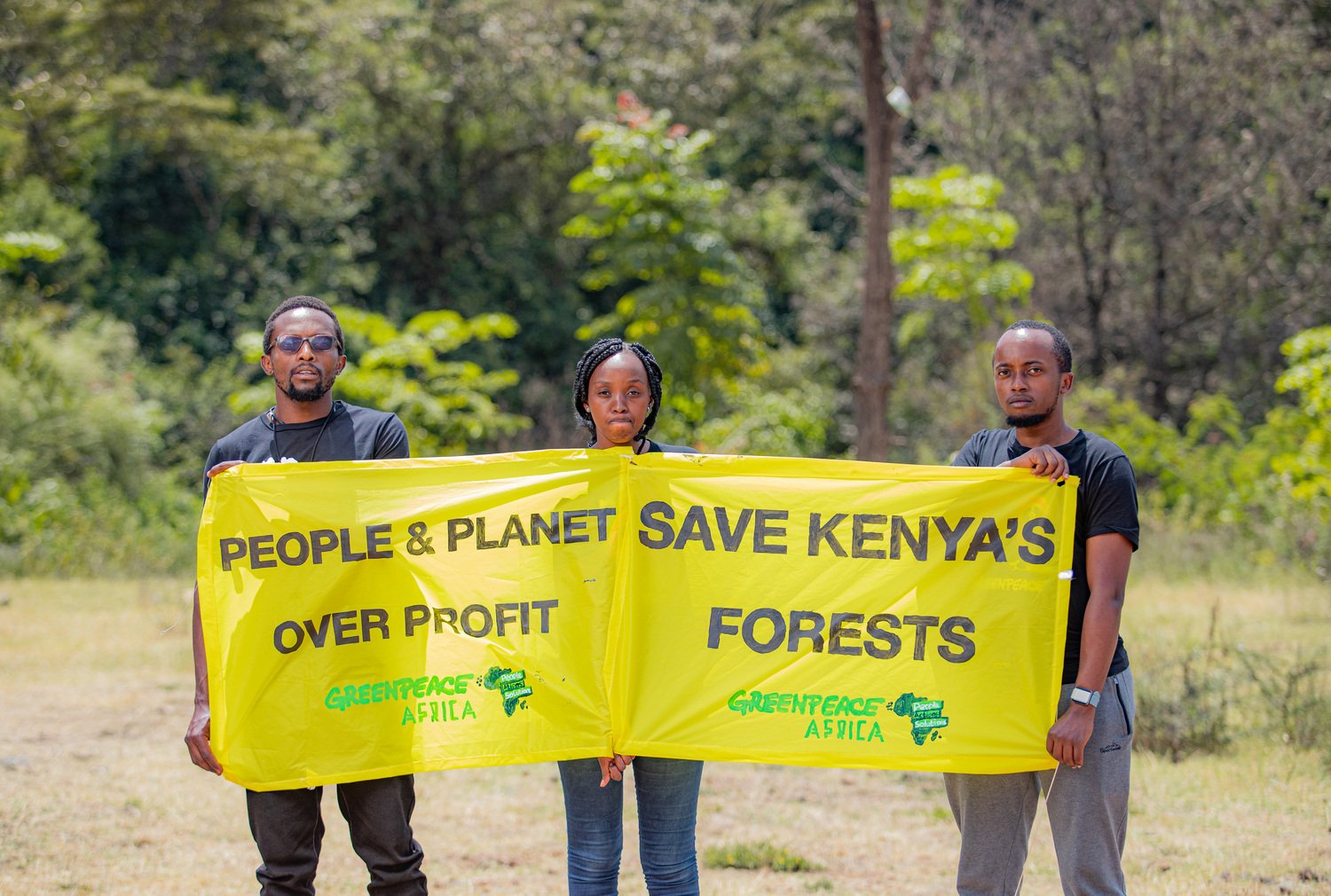
Floods in Kenya have killed dozens, washed away crops and destroyed property worth millions of shillings forcing people to flee with nothing. Approximately 300 people have lost their lives, while another 300,000 have been affected by the recent floods in Kenya. In Eastern Africa, over 600,000 people have been affected including 234,000 displaced according to the UN Office for Coordination of Humanitarian Affairs, and the numbers keep rising.
The perennial cycle of floods and drought in Kenya has been identified as one of the major climate disasters occurring in our country. Their severity continue to increase due to the climate crisis occassioned by degradation of the environment by human activities. Storms and cyclones, like Hidaya, have ripped through the East Africa region with violence and destruction beyond our control. We’re also seeing impacts like drought that are causing food shortages and water scarcity. The climate crisis is no longer imminent, it is taking lives now, and it will only get worse unless we change the status quo.
According to Yale climate connections, over the past two years, Africa has experienced five of its top 30 deadliest extreme weather disasters since record-keeping began in 1900. The science is clear: we are in a climate emergency. There is nothing natural about the devastating floods that occurred in Kenya recently. In addition to the floods, heavy rains are triggering disastrous mudslides that sweep away people, bridges, roads and entire buildings.
All around our planet, evidence of a dangerous climate crisis is growing – a crisis that threatens all of us. As a result of the climate crisis, we are seeing more and more extreme weather events at scales we have never experienced and that we are not prepared for. Extreme weather events will only become more intense and its consequences for communities more severe, should our government neglect the severity of this situation.
Unfortunately this will not be the last extreme weather event Kenya and other countries will face. This then calls for disaster preparedness but more than that concrete climate action that will ensure that farmers for instance are building resilience.
President Ruto has declared two national holidays dedicated to planting trees across the nation. Planting trees in the middle of devastating floods and drought won’t cut it. We need real action – not false solutions such as carbon offsetting projects . Carbon offsetting projects are little more than a license for the Global North and big polluters to keep polluting, while Kenya has to sell off land for tree planting projects that have been riddled with scandal and criticism by climate scientists.
There is a growing need to address vulnerabilities to this climate emergency through mitigation efforts aimed at reducing the rate and magnitude of climate change and the flooding events that come with it. Now more than ever, we need bold and climate action from President Ruto’s government in ensuring that the following demands are acted upon.
- The government of Kenya must ensure that the disaster management funds are channeled to communities that have been impacted heavily by the devastating floods. Kenya’s leaders must provide immediate aid to those affected instead of destroying people’s homes – consulting, resettling and fulfilling any promises made to support them.
- Phasing out fossil fuels in Kenya by 2030, but also take action to tackle the climate emergency for long-term resilience.
- We need justice, we need solutions to the affected communities now. We need a transition to efficient and renewable energy, like solar and wind, that will safeguard our communities, help create green and sustainable jobs and safeguard our planet.
- Kenya’s government should embrace and invest in agroecological farming techniques that promote biodiversity, soil health and water conservation as an adaptation and resilience measure to mitigate the impacts of extreme weather events and ensure food security.
- The government needs to push for the ‘polluter pays’ system that will hold companies and countries who are profiting from destruction accountable, and channel those funds directly to support communities suffering the worst impacts of the floods.
- To stop the climate emergency and safeguard our future, fossil fuels must be shut down. Fossil fuel companies should be held to account and contribute their fair financial share in addressing the climate crisis.
As the head of the Committee of African Heads of States and Governments on Climate Change (CAHOSCC), President Ruto should shift his attention away from promoting unsustainable and false solutions such as carbon offsetting projects and champion real solutions to the climate crisis such as financing investments in clean and renewable energy systems, fixing agricultural systems, and protecting our biodiversity.
Written by Hellen Kahaso Dena
Project Lead – Greenpeace Africa
This article was originally published by the Sunday Nation.



